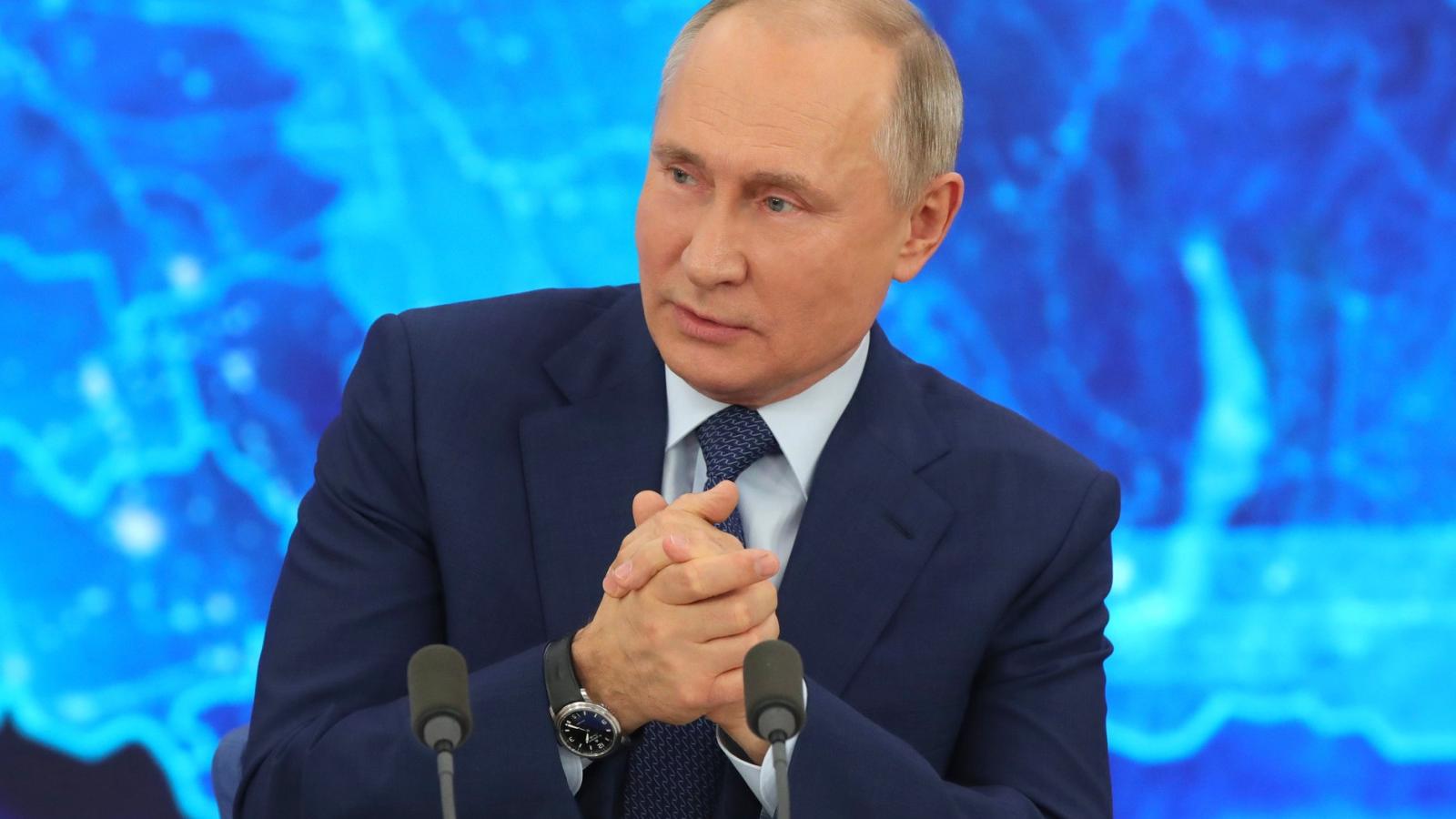'You will regret it': Putin threatens harsh response against nations that cross cryptic 'red line'

Russian President Vladimir Putin came out verbally swinging on Wednesday, announcing that his country is producing powerful new weapons, and warning that adversaries who cross an undefined "red line" will rue their actions like never before.
Russia wants to have good relationships with the international community, "including those with whom relations have broken down recently," Putin said April 21 in his annual speech before the Federal Assembly in Moscow. "We really don't want to burn bridges.”
But, he added: "Those who mistake this stance for weakness need to know that Russia's response [to aggression] will be asymmetrical, swift and harsh." Anyone who launches a provocation, he warned, "will regret their deeds in a way they have not regretted anything else for a long time."
Although he did not specify what that response might entail, the Kremlin chief also announced that Russia is replacing old, Soviet-era arms with new technology, including hypersonic and laser weapons. These include the advanced RS-28 Sarmat super-heavy intercontinental ballistic missile (ICBM); a heavy intercontinental ballistic rocket that can carry up to 15 nuclear warheads; and the powerful Peresvet laser canon.
Putin made the much anticipated speech at a time of increasing tension along the border with Ukraine, and amid fears that the Kremlin will attack the neighbor to its immediate west. In recent weeks, satellite photos and other intelligence sources have reported what appears to be an invasion-ready force of some 100,000 Russian troops.
Putin did not address the bottom line question that has consumed world leaders who want to know what the Kremlin plans to do with the troops. The Kremlin leader did, however, speak about international tensions in vague and ominous terms. Putin denounced countries attempting to impose "unlawful, politically motivated economic sanctions" and making "crude attempts to enforce their will on others" — a jab at the United States, which recently imposed a fresh round of economic sanctions against Russia.
"We have patience, self-confidence and righteousness on our side," Putin said. "I hope no one will think of crossing red lines in their relations with Russia. Where that line sits is ours to determine."
Earlier in the week, the U.S. State Department addressed the border situation directly.
"Let me be clear: Russia is the aggressor here," the department's spokesman, Ned Price, told reporters on Tuesday. "We have seen no indication whatsoever that Ukraine is engaging in provocations or escalating tensions. What we have seen is a Russian disinformation campaign designed to falsely blame Ukraine for the Kremlin's own actions."
The question about the buildup of troops remains unanswered by Putin's lengthy April 21 speech. While world leaders remain both perplexed and concerned about the possible onset of war, some observers have suggested that the buildup itself is the point of the exercise.
"The Russian military massed troops along the entire Russo-Ukrainian border, from the north to the east to the south," noted Dmitri Trenin, who directs the Carnegie Moscow Center in Russia. "It did so visibly and made sure that Western observers could analyze the maneuvers and conclude that they might not necessarily be a drill."
The point was not so much to test the new American president, Joe Biden, as to warn him of the dangers regarding Ukraine, according to Trenin, who previously served in both the Soviet and Russian armed forces.
"Going overkill in terms of military maneuvers on the Ukrainian border now may avoid the need to do terrible things at a later point," Trenin wrote in an analysis. Additionally, he noted: "While Russia is not looking for more U.S. sanctions, it is ready to take them as a price for its muscle-flexing."
The White House on Wednesday responded to the tone of Putin's speech.
"We've been clear that we desire a relationship with Russia that is stable and predictable, and we don't think it needs to continue to be on a negative trajectory," spokesperson Jen Psaki told reporters in a briefing.
Putin meanwhile faced a domestic situation inside Russia, where tens of thousands of people protested the treatment of imprisoned opposition figure Alexei Navalny, who reportedly is ill.
In the Czech Republic, meanwhile, pro-Navalny protesters erected a statue of a naked Putin sitting on a toilet. The protesters placed the statue outside the Russian Embassy in Prague.